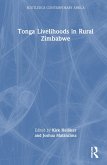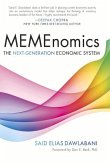This analysis of the privatization of agriculture in eastern Germany captures the turbulent times after the fall of the Berlin Wall in 1989 and the subsequent reunification of the two Germanies. Based in large part on oral histories provided by cooperative managers, newly independent family farmers, and westerners who established farms in the east, the authors examine the competitive struggle involved in the transformation from communism to capitalism. Linking the personal to the local, regional, national, and global, they develop a theory of the construction of identities out of past experiences and new challenges, in order to account for the ambiguities and contradictions inherent in the core relations and ideas that constitute the new Germany.
Hinweis: Dieser Artikel kann nur an eine deutsche Lieferadresse ausgeliefert werden.
Hinweis: Dieser Artikel kann nur an eine deutsche Lieferadresse ausgeliefert werden.








